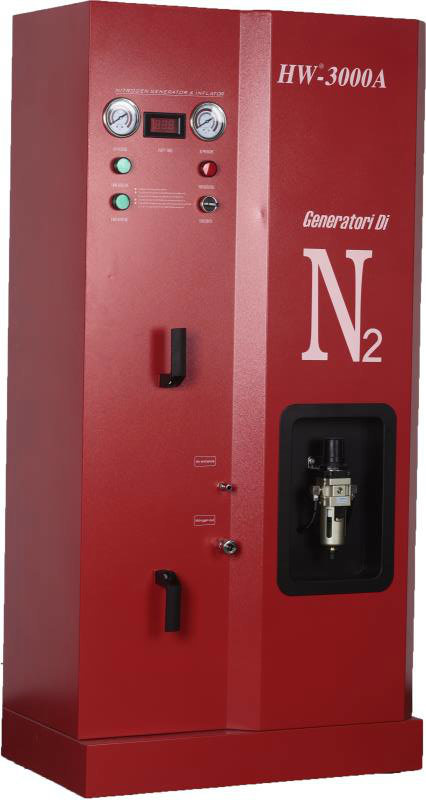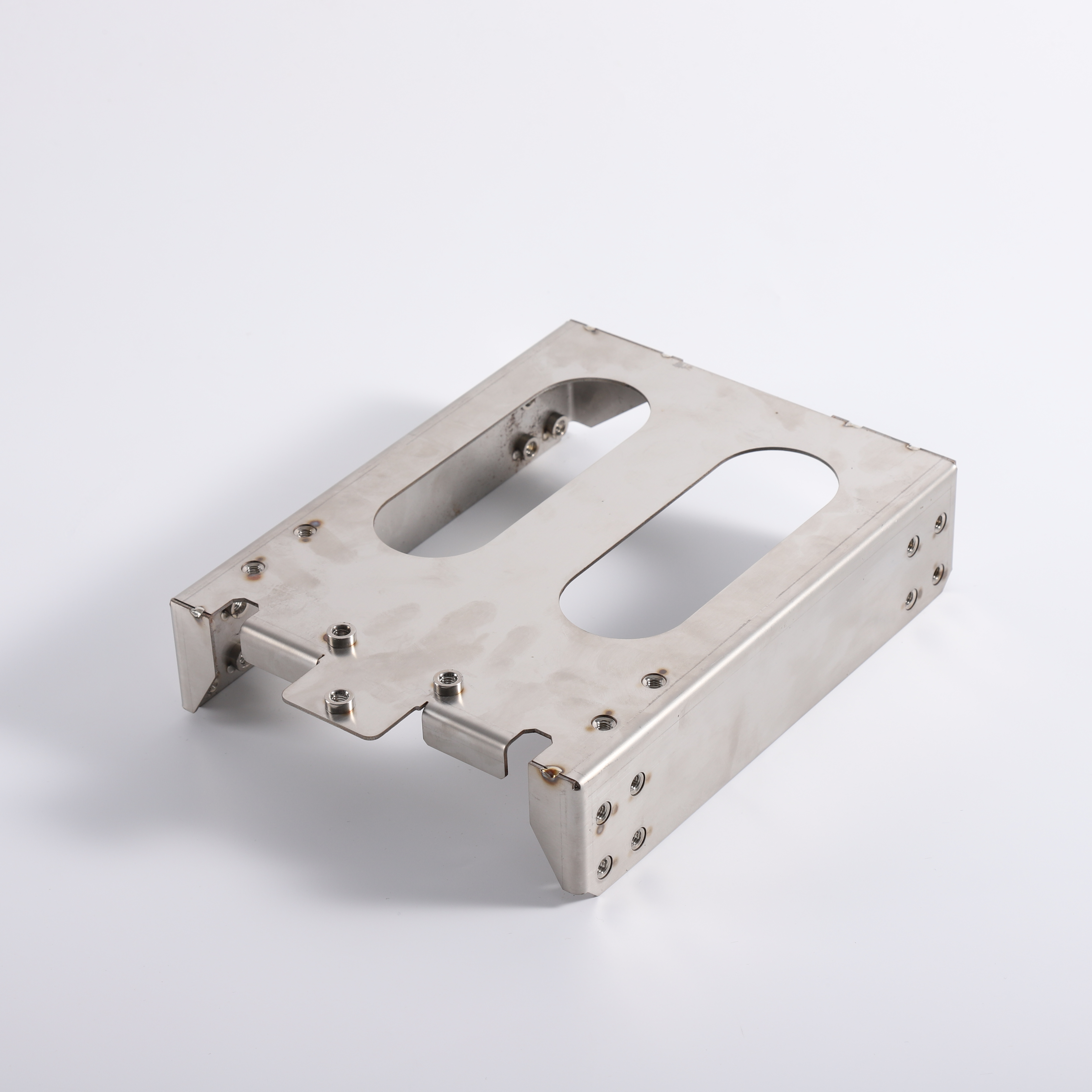Model NO.: HW-3000A
Trademark: Huawei
Transport Package: Carton
Specification: 650*470*1450mm
Origin: China
Model NO.: HW-3000A
Trademark: Huawei
Transport Package: Carton
Specification: 650*470*1450mm
Origin: China
Tyre Nitrogen Machine
Technical detail:
| Model |
HW-3000A
|
| Power supply |
AC/220V/50-60Hz |
| Input pressure |
0.7-1.0Mpa |
| Output pressure |
0.6-0.9Mpa |
| Nitrogen purity |
95-99.6% |
| Storage capacity |
60L |
| Nitrogen rate |
60-70L/min |
| Working temperature |
-18ºC~+40ºC |
| Measure range |
0-6kg/cm2Â Â 0-95psi
|
| precision |
±1%+0.5% |
| Dimension(L*W*H,mm) |
650*470*1380 |
Â
Â
Feature: Â Â Â * Main component are imported;Â Â Â * Fully automatically operation;Â Â Â * For car, motorcycle;Â Â Â * High purity N2;Â Â Â * Simple operation;Â Â Â * Equipped with inflation system. Â Â Â Â Â Â Â
Â

Â
Tyre Nitrogen Machine
Technical detail:
| Model |
HW-3000A
|
| Power supply |
AC/220V/50-60Hz |
| Input pressure |
0.7-1.0Mpa |
| Output pressure |
0.6-0.9Mpa |
| Nitrogen purity |
95-99.6% |
| Storage capacity |
60L |
| Nitrogen rate |
60-70L/min |
| Working temperature |
-18ºC~+40ºC |
| Measure range |
0-6kg/cm2Â Â 0-95psi
|
| precision |
±1%+0.5% |
| Dimension(L*W*H,mm) |
650*470*1380 |
Â
Â
Feature: Â Â Â * Main component are imported;Â Â Â * Fully automatically operation;Â Â Â * For car, motorcycle;Â Â Â * High purity N2;Â Â Â * Simple operation;Â Â Â * Equipped with inflation system. Â Â Â Â Â Â Â
Â

Â
Sheet Metal Fabrication
Sheet Metal Fabrication
Definition of sheet metal fabrication
Sheet Metal fabrication is the creation of useful metallic parts and structures by the application of multiple fabrication processes. Sheet metal fabrication is basically a broad term that involves various complex processes like cutting, forming, bending, welding, machining, and assembling. The instructions include below: materials, processes, and tools required for sheet metal fabrication.
Types of Sheet Metal Fabrication Materials
The choice of metal depends on the final use of the fabricated parts.
Common fabrication processes:
· Carbon Steel
· Stainless Steel
· Aluminum
· Bronze
· Copper
· Brass
· Aluminized steel
· Galvanized steel
Types of Metal Fabrication Processes
The journey to the final product from raw sheet metals proceeds through various sheet metal fabrication processes. All the sheet metal fabrication processes can be grouped into the following three categories:
· Cutting
· Deformation
· Assembly
Sheet metal fabrication: Cutting
i. Laser Cutting
ii. Water jet cutting
iii. Plasma cutting

Sheet metal fabrication: Forming or Deformation
Bending: Sheet metal bending is one of the most popular deformation processes. A machine known as a Press brake is used to bend sheet metals into V, U, or other complex shapes. With an increase in gauge thicknesses of sheet metals the force required to bend increases.
Stamping: In the stamping process, a hydraulic or mechanical stamping press equipped with a tool and die is used to perform specific tasks like curling, drawing, embossing, flanging, etc
Hemming: Hemming is a process by which the edges of sheet metal are folded over itself or another piece of sheet metal to create a rounded edge. In the sheet metal fabrication process, two types of hemming processes are widely involved. They are roll hemming and conventional die hemming. Conventional hemming is used for mass production. A hemming roller is used for roll hemming.
Spinning: Spinning is a metal fabrication process where a lathe machine is used to rotate the sheet metal against a tool to produce conical or cylindrical shapes.
Sheet metal fabrication: Assembly
Assembly is basically joining Sheet Metal Components produced using above mentioned cutting or bending processes. The common sheet metal assembly process consists of joining by Welding and joining using fasteners.
Welding: In the welding process, sheet metal components are joined together by melting sections with the application of heat to form a solid connection. There are various processes available that are used to weld sheet metals.
Joining using Fasteners: Similar or dissimilar sheet metal parts can easily be joined using fasteners like bolts, screws, rivets, etc.
Brazing: Brazing is a process similar to welding that operates by melting a filler without melting the sheet metals.
Adhesives: Adhesives can be used to hold metal sheets together in conjunction with other joining methods
Advantages and Disadvantages of Sheet Metal Fabrication
As sheet metal fabrication covers a wide area of techniques and methods, the advantages and limitations will vary depending on the process used during fabrication.
Benefits:
i. Sheet metal fabrication is fast and can produce high-quality components.
i. A large number of processes are available with wide range of materials
ii. High strength to weight ratio for sheet metal fabricated parts.
Disadvantage:
i. Each fabrication process has their own limitations.
ii. High initial cost for set up of equipment and tools.
iii. Requirement of skilled labors for each process.
Sheet Metal Fabrication,Custom Sheet Metal Fabrication,Precision Sheet Metal Fabrication,Stainless Steel Sheet Metal Fabrication
Suzhou FCE precision electronics Co., LTD , https://www.sjfukeyifcesz.com


